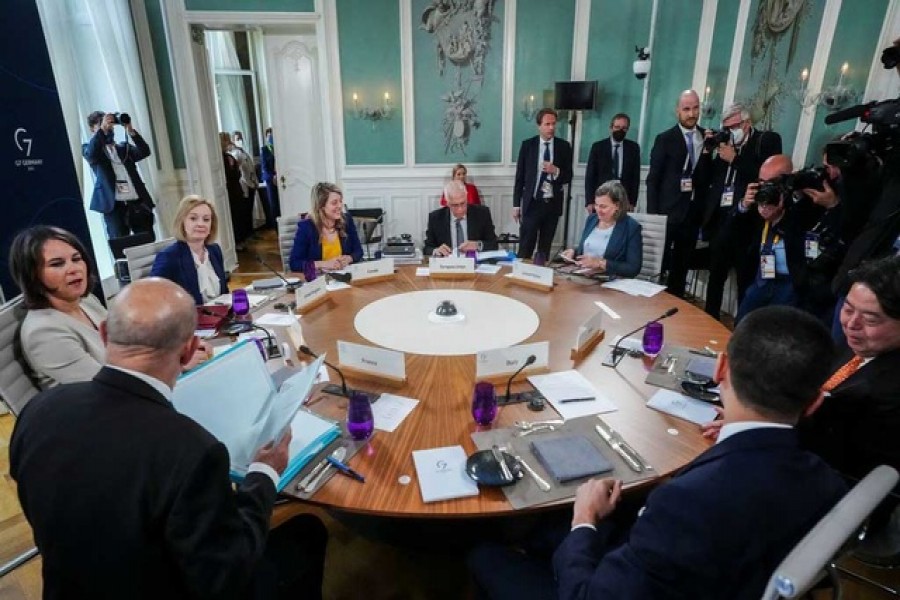Group of Seven foreign ministers vowed on Saturday to reinforce Russia's economic and political isolation, continue supplying weapons to Ukraine and tackle what Germany's foreign minister described as a "wheat war" being waged by Moscow.
After meeting in the Baltic Sea resort of Weissenhaus, senior diplomats from Britain, Canada, Germany, France, Italy, Japan, the United States and the European Union also pledged to continue their military and defence assistance for "as long as necessary".
They would also tackle what they called Russian misinformation aimed at blaming the West for food supply issues around the world due to economic sanctions on Moscow and urged China not to assist Moscow or justify Russia's war, according to a joint statement, reports Reuters.
"Have we done enough to mitigate the consequences of this war? It is not our war. It's a war by the president of Russia, but we have global responsibility," Germany's Foreign Minister Annalena Baerbock told reporters.
Former Russian President Dmitry Medvedev, a close ally of Vladimir Putin, dismissed the meeting, especially the group's insistence that the integrity of Ukraine's internationally recognised borders be recognised.
"Let's put it mildly: our country does not care at all about the G7 not recognising the new borders. What is important is the true will of the people living there," he said in an online post. Russian forces control large parts of eastern Ukraine.
Key to putting more pressure on Russia is to ban or phase out buying Russian oil with EU member states expected next week to reach an agreement on the issue even if it remains at this stage opposed by Hungary.
The ministers said they would add further sanctions on Russian elites, including economic actors, central government institutions and the military, which enable Putin "to lead his war of choice."
The meeting, which the foreign ministers of Ukraine and Moldova attended, also spotlighted food security concerns and fears that the war could spill over into its smaller neighbour Moldova.
"People will be dying in Africa and the Middle East and we are faced with an urgent question: how can people be fed around the world? People are asking themselves what will happen if we don't have the grain we need that we used to get from Russia and Ukraine," Baerbock said.
She added that the G7 would work on finding logistical solutions to get vital commodities out of Ukraine storage before the next harvests.
Attention now turns to Berlin as ministers meet later on Saturday with Sweden and Finland gearing up to apply for membership of the transatlantic alliance, drawing threats of retaliation from Moscow and objections from NATO member Turkey.
"It is important that we have a consensus," Canada's Foreign Minister Melanie Joly told reporters.
Putin calls the invasion a "special military operation" to disarm Ukraine and rid it of anti-Russian nationalism fomented by the West. Ukraine and its allies say Russia launched an unprovoked war.
"More of the same," EU Foreign Policy chief Josep Borrell told reporters. "The one thing that is missing is pushing for a diplomatic engagement to get a ceasefire. It is missing because Vladimir Putin has been saying to everybody that he doesn't want to stop the war."


